Thousands of Australians targeted by Flubot malware phone scam
ScamWatch has warned what you shouldn’t do, under any circumstances, if you receive this text message.
The Australian Competition and Consumer Commission’s Scamwatch division is warning Australians to be on the lookout for “Flubot” text messages.
Thousands of Australians have received the dodgy text messages since August 4 and one person has lost up to $4000.
A link will be sent to you via a phone text message. If you click on the link, this will install malware onto your device.
Phone users are often enticed to click on the link by promises of hearing a missed voicemail.
However, these messages are poorly spelt and riddled with typos, giving an indication that it isn’t a legitimate message.
Once the malware is installed, it can then go to steal your passwords and data and ultimately take your money.
Last Friday, authorities put out an official warning as complaints about these phone calls skyrocketed.
RELATED: Check your bank account for mysterious $8.19 charge
SCAM ALERT! Be aware of scam SMS messages with unusual links to a missed call or voicemail message. If you receive one of these messages, do not open the link. Read more: https://t.co/S9RTbTJIeWpic.twitter.com/2gES9YzZsP
— ACMA (@acmadotgov) August 20, 2021
RELATED: ‘Horrified’ by brother’s romance scam
The Flubot scam was first flagged on August 4.
Between then and now, Scamwatch has received nearly 500 reports a day.
As of noon Monday, Scamwatch has received 5953 reports of the text messages.
There has been $5579 in losses so far.
One person reported a whopping six scam messages on the same day.
Another person said they received so many texts – all from different numbers – that they didn’t even look at their phone when it notified them that they had a new message.
I’m getting so many of these malware spam SMSs now that I don’t even look at my phone when it dings. pic.twitter.com/zcdquI3iw4
— Shaun Ewing (@swewing) August 20, 2021
In all, there have been more than 5000 complaints in the last three weeks.
“I cannot think of any time I’ve ever seen that many complaints on one scam in such a short period of time,” Delia Rickard, deputy chair of the Australian Competition and Consumer Commission, told news.com.au.
“It’s a very sophisticated scam and potentially very dangerous. It can compromise people’s bank accounts.
“Whatever you do, don’t click on the link.”
Ms Rickard said there was a reason behind why the text messages were badly spelt.
“It looks really odd, starting with five or six gibberish alphabet letters and then numbers,” she said.
“We think it’s avoiding triggering scam detection.”
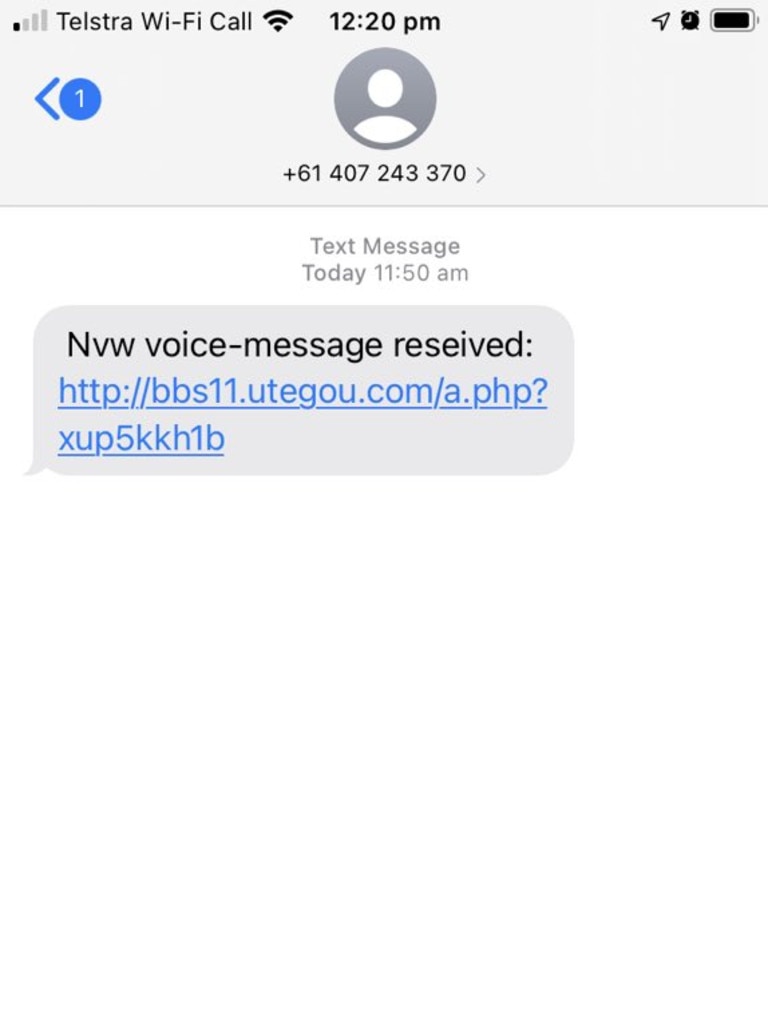
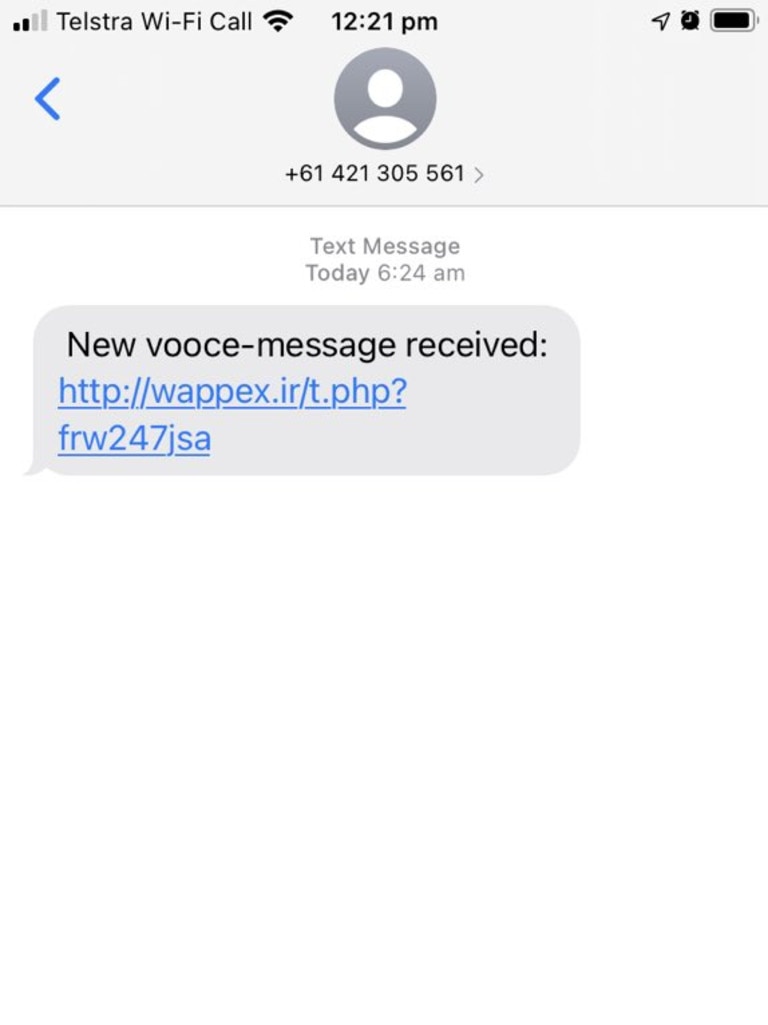
Ms Rickard said the scam has been widely reported in Europe and now it’s come to Australia’s shores.
The malware only infects Android phones.
If you click on the link, it will take you to an app called Voicemail71.APK. Once you download the app, your android phone is infected.
Not only can it now watch you type in all your passwords, it also gets hold of all the contacts in your phone.
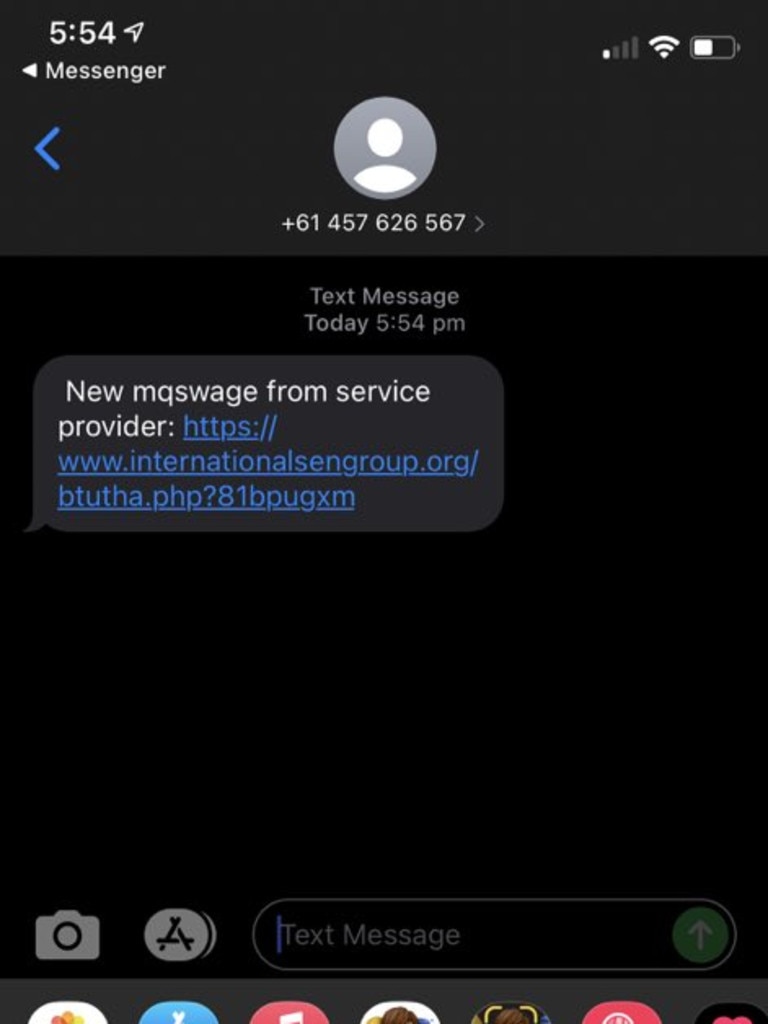
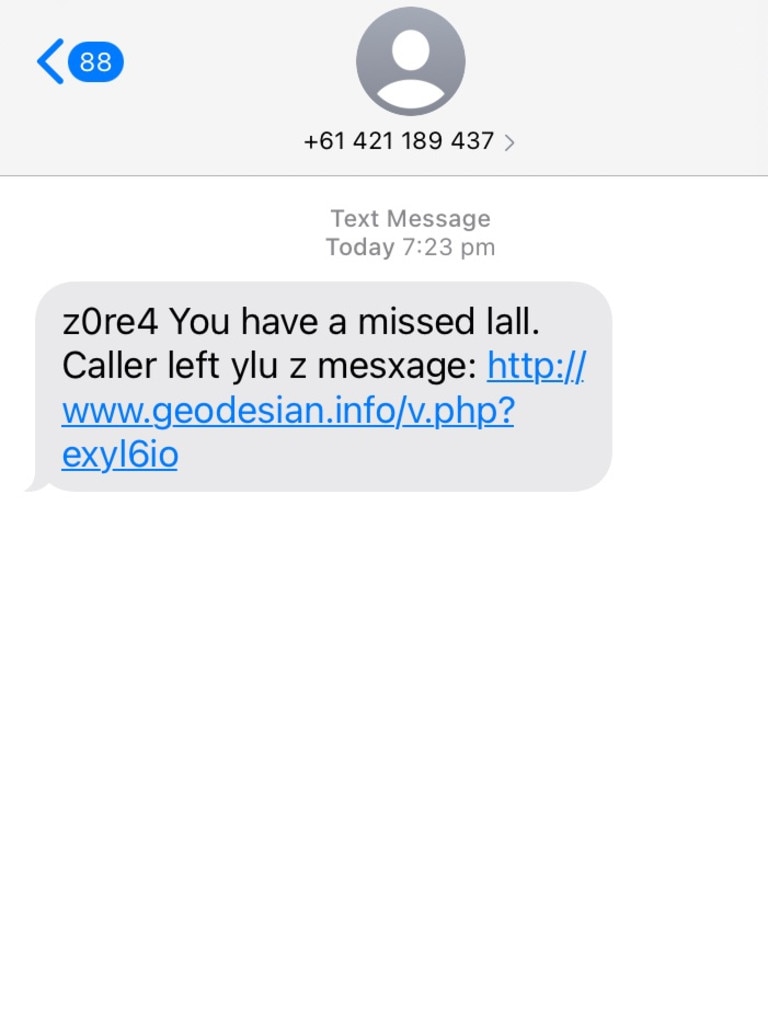
“If you download it, the malware gives the permission to read SMS messages, it allows it to send SMS messages, it could initiate the phone call without going through the dialler,” Ms Rickard warned.
“It reads the user’s contact details. Could send out messages and calls all night without you knowing.”
She said the ACCC had received a “number of complaints” to this effect, where Australians had been abused over the phone as people called them up mistaking them for scammers because they had sent the text.
In reality, they were the scam victims.

What should I do if I get the message?
For starters, don’t click on the weblink.
And don’t call the number either.
Instead, report the text to Scamwatch, delete the message and block the number.
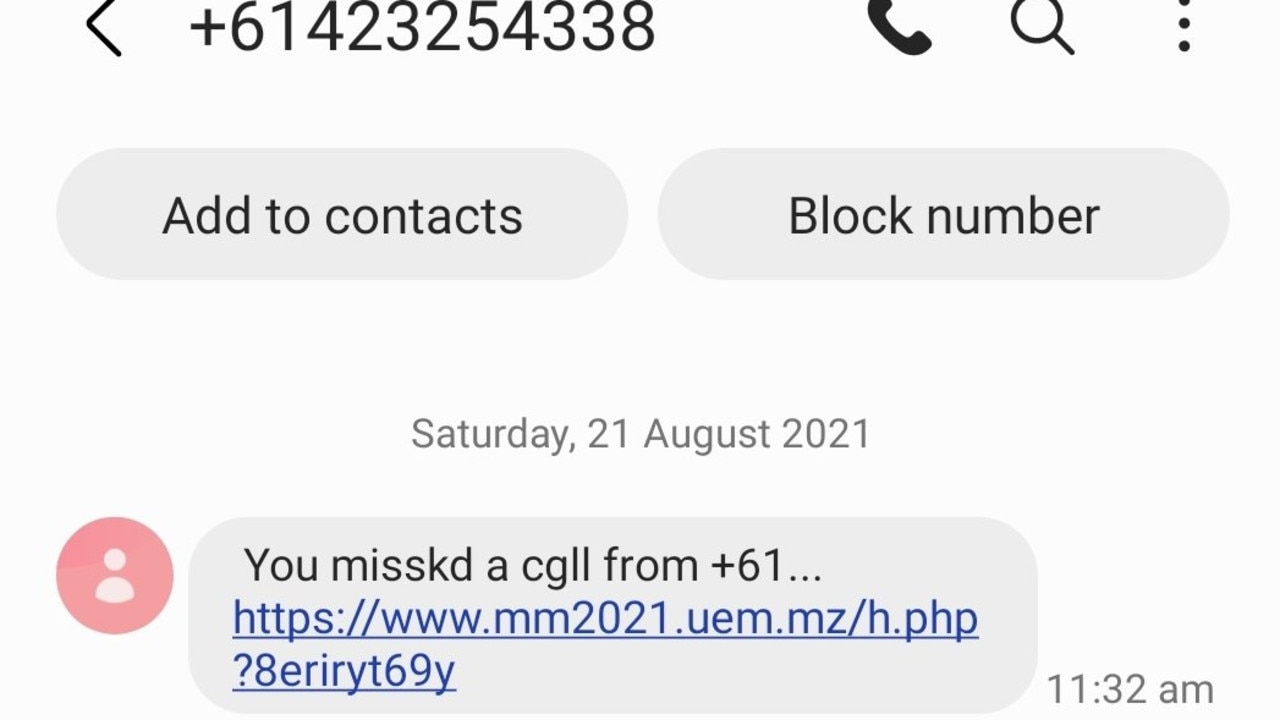
What should I do if I clicked on the link?
You should immediately contact your bank to make sure you haven’t lost any money.
Ms Rickard said there were three ways to get rid of the malware.
“Just getting rid of that app doesn’t get rid of that problem,” she warned.
You need to go to an IT professional to wipe the virus, download an antivirus software that gets rid of it, or you can do a factory reset.
“As long as your phone is infected, don’t go into any of your accounts,” she added.
If you have lost personal information to a scammer you can contact IDCARE or call 1800 595 160.
You can also make a report to ReportCyber if you have been a victim of this cybercrime.



